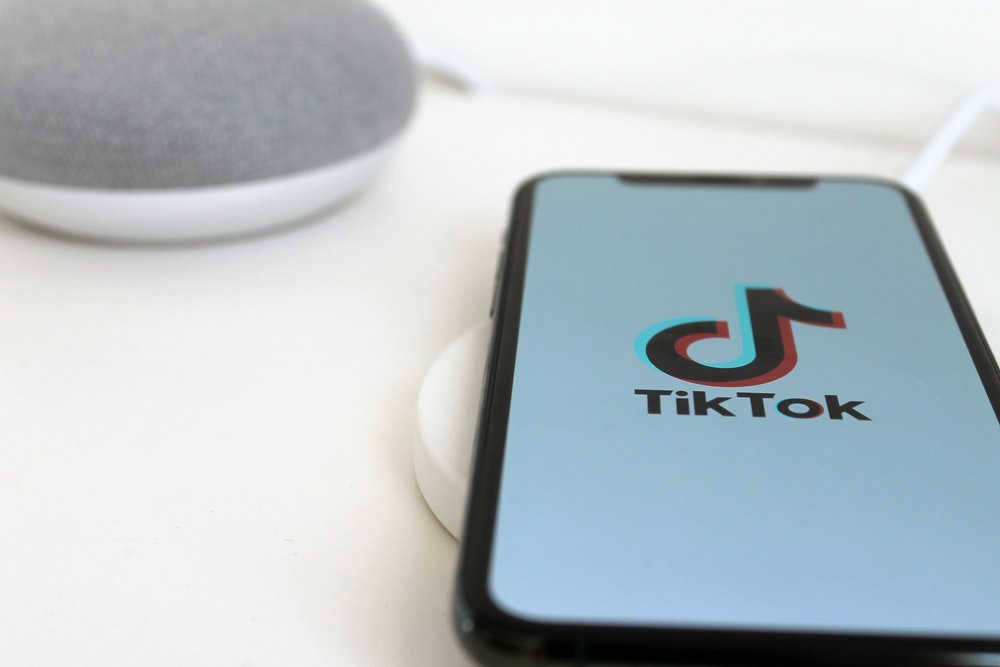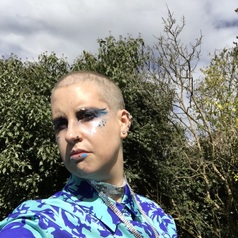TikTok, the viral video sharing platform, has been one of the biggest hits of lockdown. Content that originated on the app, like nurses dancing in UK hospitals, has jumped to mainstream TV coverage. TikTok even put its first ad on UK television, made in isolation.
TikTok’s user base has grown rapidly over the lockdown period, with 315 million downloads in the first quarter of 2020. It is not difficult to see why it has found its lockdown niche: the infinite scroll of content there is addictive and less stressful than news-driven platforms.
TikTok videos are usually made at home, and so creators are not at a disadvantage despite their humdrum surroundings. This is in contrast to platforms like Instagram, which has become a showcase for travel, glamour and live events.
TikTok trends
Political activists adapt existing TikTok memes and trends. Dances and lipsyncs are set to political speeches, and challenges used to make political points. Producers of political content on TikTok skew younger than those on other social media, which matches the creator base and audience profiles.
Individuals are more popular than party political branded accounts, partly because official accounts feature mostly repurposed video which has been shot horizontally for other platforms. This looks out of place on Tiktok, which presents video vertically.
What works well is organic content made on and for the app. TikTok has its own more intimate feel: videos have a homemade, spontaneous quality. A teenage Boris Johnson fan, posting videos of himself at home, has racked up thousands of views.
One young Labour activist has made TikTok videos with MPs in Parliament. Until recently the daughter of Chancellor of the Duchy of Lancaster, Michael Gove, had an account, and his supporters and opponents followed her hoping for insight into their family life.
The style of political content on Tiktok owes much to the more open expression of fan culture in politics over the past few years. While fans have existed in politics for as long as politicians have been celebrities, it has become normalised to wear your political heart on your sleeve.
From hashtags and fan videos to homemade placards and t-shirts, fan culture celebrating individual politicians is here to stay. Neighbours of Dominic Cummings, the UK prime minister’s senior strategist, have been sharing the anti-fan activity on their street.
Online community
Activists are able to not just exploit virality but find community by using the same song, audio clip, filter, dance or challenge. Hashtags are less important now on text-dominated platforms and more so on visual ones like Instagram, YouTube and TikTok. The app is driven by trends, memes, challenges and recommendations.
Creators who are underrepresented on other platforms due to race, disability and class can speak to their peers directly. The killing of George Floyd by white police officers and the response from the Black Lives Matter movement has seen an explosion of content on the platform. TikTok has been criticised, though, for excluding black and less conventionally attractive creators from the app’s For You landing page, limiting their reach.
In the future, it is likely that more young politicians will produce their own content for or inspired by the platform. Interactions on social networking services have been said to improve young people’s perception of the likeability of political candidates and their trust in government.
The playful, funny interactions on TikTok may have potential for good as well as harm for the public sphere, if politicians and their fans can strike the right tone.



 Trump Backs Nexstar–Tegna Merger Amid Shifting U.S. Media Landscape
Trump Backs Nexstar–Tegna Merger Amid Shifting U.S. Media Landscape  US Pushes Ukraine-Russia Peace Talks Before Summer Amid Escalating Attacks
US Pushes Ukraine-Russia Peace Talks Before Summer Amid Escalating Attacks  Ohio Man Indicted for Alleged Threat Against Vice President JD Vance, Faces Additional Federal Charges
Ohio Man Indicted for Alleged Threat Against Vice President JD Vance, Faces Additional Federal Charges  Sony Q3 Profit Jumps on Gaming and Image Sensors, Full-Year Outlook Raised
Sony Q3 Profit Jumps on Gaming and Image Sensors, Full-Year Outlook Raised  Instagram Outage Disrupts Thousands of U.S. Users
Instagram Outage Disrupts Thousands of U.S. Users  AMD Shares Slide Despite Earnings Beat as Cautious Revenue Outlook Weighs on Stock
AMD Shares Slide Despite Earnings Beat as Cautious Revenue Outlook Weighs on Stock  SpaceX Reports $8 Billion Profit as IPO Plans and Starlink Growth Fuel Valuation Buzz
SpaceX Reports $8 Billion Profit as IPO Plans and Starlink Growth Fuel Valuation Buzz  Trump Endorses Japan’s Sanae Takaichi Ahead of Crucial Election Amid Market and China Tensions
Trump Endorses Japan’s Sanae Takaichi Ahead of Crucial Election Amid Market and China Tensions  Google Cloud and Liberty Global Forge Strategic AI Partnership to Transform European Telecom Services
Google Cloud and Liberty Global Forge Strategic AI Partnership to Transform European Telecom Services  China Warns US Arms Sales to Taiwan Could Disrupt Trump’s Planned Visit
China Warns US Arms Sales to Taiwan Could Disrupt Trump’s Planned Visit  Nintendo Shares Slide After Earnings Miss Raises Switch 2 Margin Concerns
Nintendo Shares Slide After Earnings Miss Raises Switch 2 Margin Concerns  Trump Lifts 25% Tariff on Indian Goods in Strategic U.S.–India Trade and Energy Deal
Trump Lifts 25% Tariff on Indian Goods in Strategic U.S.–India Trade and Energy Deal  Trump Signs “America First Arms Transfer Strategy” to Prioritize U.S. Weapons Sales
Trump Signs “America First Arms Transfer Strategy” to Prioritize U.S. Weapons Sales  Iran–U.S. Nuclear Talks in Oman Face Major Hurdles Amid Rising Regional Tensions
Iran–U.S. Nuclear Talks in Oman Face Major Hurdles Amid Rising Regional Tensions  SpaceX Updates Starlink Privacy Policy to Allow AI Training as xAI Merger Talks and IPO Loom
SpaceX Updates Starlink Privacy Policy to Allow AI Training as xAI Merger Talks and IPO Loom  Norway Opens Corruption Probe Into Former PM and Nobel Committee Chair Thorbjoern Jagland Over Epstein Links
Norway Opens Corruption Probe Into Former PM and Nobel Committee Chair Thorbjoern Jagland Over Epstein Links 
































